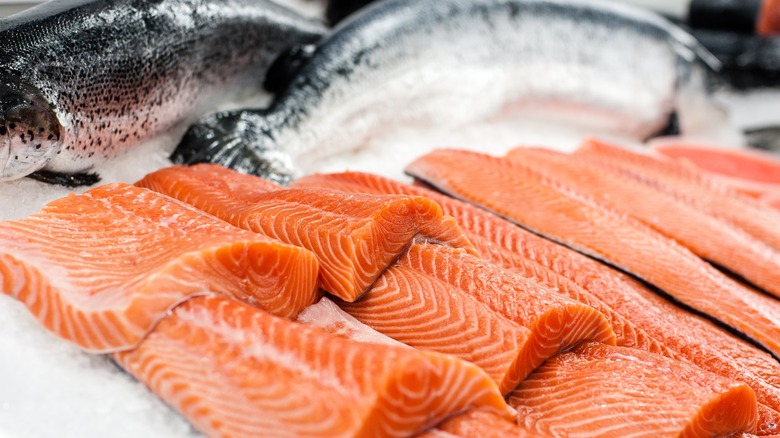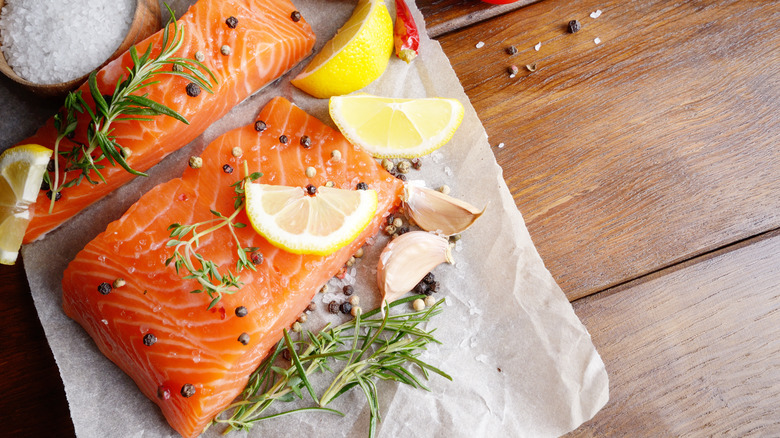Why You Should Wait To Salt Salmon
There are a lot of reasons why you should be enjoying salmon. First and foremost, it is wonderfully good for you. The large, and verifiably delicious, salmon is one of the best fish to eat if you're seeking a meal with lots of protein and all those omega-3 fatty acids which are extremely important for better heart and brain functions (via Washington State Department of Health).
Another reason you should be incorporating salmon into your diet is that you can eat it on ... Well, you can mix salmon into just about any recipe! Imagine salmon burgers between fresh, warm brioche buns, or smoked salmon pasta coated in a garlic butter sauce and topped with freshly grated parmesan. You can make salmon tacos, fry the salmon skin into salted cups, or simply enjoy a well-seasoned salmon steak atop a bed of rice. It's just one of those blessedly convenient foods that you can, and should, use in everything. One of the few issues people tend to stumble upon when it comes to cooking salmon is the seasoning. Unfortunately, there is such a thing as over-salting in the salmon world, and it is an all too easy mistake to make.
Hold the salt
In all fairness, when it comes to seasoning meats, most people have the most experience with things like ribeyes, chicken breasts, or ribs all of which are fantastic for long marinating and can handle sitting in a dry rub for a few hours. Unfortunately, salmon doesn't have the same fortitude. According to City Fish Market, you should never salt your fish more than 15 minutes before you plan on cooking it. The salt will draw the moisture out of the fish and the cooking process will dehydrate it even further, leaving you with an undesirable cut of seafood. You also don't want to overseason the salmon with heavy marinades or rubs! The fish is delicious in and of itself and you'll want to be able to enjoy its delicate natural flavor.
So instead of overdoing it, Food & Wine recommends salting your (room temperature) salmon right before you cook it whether you choose to bake or pan sear the filet. If you are worried that you did oversalt your fish and need to save it from a dehydrated demise, poach it in a plain broth to combat the moisture issue. And if you realize the error of your ways far too late, and your salmon is already cooked and dried out, you can deconstruct it into fish cakes or a filling for another dish.

